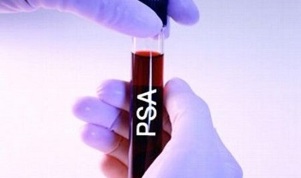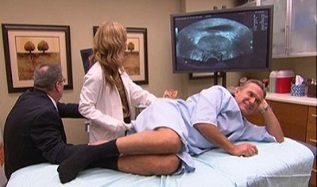Acute prostatitis is an inflammatory process in the prostate gland and no one is immune to it. According to experts, the disease is found in half of men of reproductive age. Acute prostatitis is an infectious lesion of the prostate gland, accompanied by edema and the formation of purulent foci in the body. Some symptoms appear immediately, while others are detected only at the time of diagnosis. What are the causes of the disease, how does it manifest itself and what treatment measures are taken?
Why does it occur?
The causes of the acute form of the disease in men are infection of the organs with gram-negative (E. coli, Proteus, Klebsiela and others) and gram-positive (streptococci, staphylococci) bacteria.
Acute bacterial prostatitis often develops as a result of urogenital infections transmitted through unprotected sex:
- Chlamydia.
- candidiasis.
- Gonorrhea.
- Trichomoniasis and others.
In addition, urethritis is often the cause of acute prostatitis: pathogenic bacteria enter from the prostate ducts that open in the wall of the urethra. Very rarely, the infection occurs when men develop acute cystitis and bacteria enter the prostate from the bladder. There is also a method of hematogenous infection in which pathogens spread through the bloodstream.
In addition to these reasons, there are others:
- Disorders in intimate life (disconnection and short term, erectile dysfunction).
- Hypothermia of the body.
- Caused by sedentary work or lifestyle.
- Pathology of the rectum.
- Consequences of urogenital surgery.
- Respiratory viral infections.
- Stagnant events that occur in the vessels of the pelvis and often lead to disruption of drainage of the prostate ducts.
- Difficulty defecating, varicose veins.
The causes are different, but they all contribute to the onset of acute prostatitis.
How does the pathology manifest itself?
Symptoms generally depend on the stage of inflammation.
The following acute prostatitis symptoms are observed in the catarrhal stage:
- Violence and painful symptoms in the genital area.
- Painful and frequent emptying of the bladder, which worries men, especially at night.
- A slight increase in temperature is possible.
- There are no signs of intoxication.
Palpation may reveal no changes or a slight enlargement of the prostate. In men, this test causes a little pain. Symptoms of acute prostatitis are also detected by tests. Increased levels of leukocytes are found in the secretions of the pancreas, the presence of mucus and pus fibers, and leukocytes are also seen in the urine. Timely treatment of catarrhal prostatitis will allow a person to recover in one and a half years.

Acute follicular prostatitis has more severe symptoms. Pain in the sacral region, perineal region of the anus worries men. At this stage, the patient feels a painful urination. Pain is also a problem in the stool problem. The temperature rises to 37, 5-38 ° C.
Certain symptoms are detected and diagnosed. During the stroke, the doctor determines that the gland has grown and thickened, become asymmetrical, and causes severe pain when pressed. The number of purulent fibers and leukocytes in the urine increases, forming as a precipitate in the urine. If adequate treatment is prescribed, the prognosis is favorable.
If the disease is not treated, the next stage develops - acute parenchymal prostatitis. The symptoms of this form of the disease in men are as follows:
- The temperature rises to 39-40 ° C.
- The patient is shaking.
- There are signs of general weakness.
- Anorexia, but constant thirst.
- At first, urination is very frequent, difficult, and stops after a while.
- The patient suffers from constipation and flatulence.
Symptoms of an acute type of prostatitis are more pronounced, for example, the pain spreads to the rectum, there is a pulsation. Sometimes the symptoms are accompanied by swelling of the pararectal tissues, in which case the method of rectal examination can not be applied. A mixture of pus is observed in the urine. An acute illness must be treated urgently, otherwise an abscess will develop. When a weakly virulent pathogen enters the body, the symptoms are practically invisible, then the patient is said to have a subacute type of prostatitis.
How is it treated?
Are men interested in how to treat acute prostatitis? According to experts, the treatment of acute prostatitis is primarily based on eliminating the causes of the disease. As a rule, antimicrobial drugs are used. Antibiotics are selected individually in each case based on the diagnosis. Continue taking antibiotics until complete recovery. Such treatment, according to doctors, will stop the acute processes that cause the active proliferation of pathogenic microorganisms in the tissues of an infected person's body. Treatment of acute prostatitis should be comprehensive.
Not only antibiotics but also other drugs are used:
- Immunostimulating drugs.
- Means that improve blood circulation.
- Non-steroidal anti-inflammatory drugs.
- Vitamin complexes.
- Herbal medicine.
- Sedatives and antidepressants.
Drugs with analgesic and antispasmodic effects can relieve men of unpleasant pain. A similar effect is applied by the suppository to enter the anus with an anesthetic. Candles, as a rule, have antibacterial properties that act gently on the pathogen - the pathogen. At home, sea buckthorn oil, propolis, honey, as well as rectal suppositories, a hot herbal source of enemas will help to cope with the pain.
In men, a course of bioregulatory peptides is prescribed to normalize metabolic processes in the prostate gland and accelerate the regeneration of damaged tissues. Treatment also includes immunostimulants and modulators, non-steroidal anti-inflammatory drugs (tablets or injections), injectable solutions, and vitamin complexes.
If antibiotics or NSAIDs do not cope with the infection, hormones are included in the treatment.

After eliminating the main symptoms of acute prostatitis, treatment is completed with physiotherapy:
- Electrophoresis.
- Prostate massage.
- microwave and others.
A good effect, confirmed by the patient's views, is the treatment of prostatitis with phytopreparations.
It is recommended to use these drugs at home for prophylactic purposes. Herbal tablets can replace mixtures and infusions of home-made herbs.
Symptoms of acute prostatitis type clear the springs from meadow flowers, hop cones, strawberries. Area ponytail, calamus root, chamomile are effective.
In acute prostatitis, a catheter is not inserted with a significant delay in urine flow, and treatment is performed by removal of the bladder wall - cystotomy.
If a prostate abscess is diagnosed, treatment is performed surgically, and the cavity is emptied when the abscess is opened. Acute forms include bed rest, as well as abstinence from sexual intercourse and diet.
As can be seen from the opinions of doctors, timely identification of the causes of the acute form of the disease and a competent treatment process can cure the disease in a fairly short time.
























